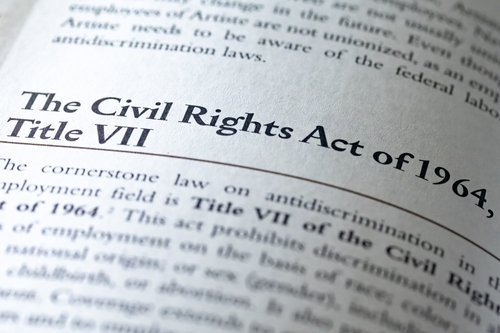In a unanimous decision, the U.S. Supreme Court has formalized and affirmed the legal standard for employment discrimination claims for nonminority groups under Title VII of the Civil Rights Act of 1964.
What Changed?
Typically, in Title VII cases, employees must show they are members of a protected class, they were qualified for the job in question, they experienced an adverse employment action, and similarly situated individuals outside their protected class were treated more favorably.
Previously, some courts—including the U.S. 6th Circuit Court of Appeals (whose rulings apply to all Michigan employers)—required majority-group employees (such as white, male, heterosexual, or nonminority employees) to meet an additional burden when filing discrimination claims. This additional burden, which was deemed the “background circumstances” test, required employees to present extra evidence suggesting that the employer could be biased against majority-group members and took the place of showing membership in a protected class.
In Ames v. Department of Youth Services, the 6th Circuit relied on that test to dismiss a heterosexual woman’s claim that she was discriminated against based on her sexual orientation. The Supreme Court reversed, holding that Title VII protects any individual from discrimination based on race, color, religion, sex, or national origin—regardless of majority or minority status. The Court emphasized that Title VII contains no language that limits protection only to members of historically marginalized groups.
What Does This Mean for Employers?
The Court’s decision broadens the scope of who can file a discrimination claim and eliminates the distinction between “majority” and “minority” employees.
Any adverse action perceived to be taken “because of” a protected characteristic can form the basis of a claim—no extra evidentiary hurdle applies.
Takeaways for Employers
To mitigate risk, you should ensure that all employment decisions, regardless of the employee’s demographics, are:
- Based on objective, job-related reasons;
- Consistently applied across the workforce;
- Thoroughly documented, including performance issues, disciplinary steps, and supporting evidence; and
- Reviewed with HR before action is taken.
This decision is a reminder that Title VII protections apply to everyone and that robust documentation and clear, nondiscriminatory justifications for employment decisions are essential.
Michelle L. Kolkmeyer is an attorney with Bodman PLC in Troy, Michigan, and can be reached at mkolkmeyer@bodmanlaw.com.

